In this guide, you’ll learn:
In any search engine optimization (SEO) strategy, using links is king. There are internal links, the ones that point to other parts of your site, and external links that direct to other resources or knowledge that relates to a topic.
But there is a third type that sometimes gets overlooked – backlinks. These are other sites linking back to yours. They are important for several reasons.
If you want to improve your SEO link-building tactics, one of the best things you can do is identify and acquire backlinks from high-quality websites in your industry or niche.
But where do you start? The competition. Below, we’ll examine:
- The importance of looting competitors’ links
- Determining your competitors
- Finding competitor backlinks
- Landing a backlink
- Frequently asked questions
Ready? Let’s dive in!
The importance of looting competitors’ links
If you’re just building up your SEO strategy, they’re already leagues ahead. But that doesn’t mean it has to stay that way.
Taking advantage of the work that they’ve already put in is possible – and perfectly ethical. After all, if they’re ranking ahead of you, it’s because they have done something right. There’s no shame in learning from the best.
Here’s SEO superstar Ankit Vora on the importance of replicating competitor backlinks:
‘Some businesses pay for backlinks. Some don’t.
By conducting an SEO competitor analysis, you’ll be able to prepare a list of publications or websites your competitors are getting backlinks from.
You can create a better version of articles than your competitors and reach out to these websites or publications to let them know about it.
That’s how you build a results-driven backlink outreach strategy.’
He’s got it right and touches on a key point. You will have to improve on the articles that they have, by offering some new value to readers and other businesses.
With Google’s new Helpful Content update that rolled out in August 2022, even more importance is now placed on the value an article is providing – not just how many keywords it has.
That means before you start targeting competitor links, you better have some content that is worth linking to!
Determining your competitors
There are probably people – or companies if you’re B2B – all over the country or even the world that offer the same thing as you.
Think of these in two different groups. Some competitors are direct and some are indirect.
- Direct competitors offer the same product as you in the same market. An example would be two coffee shops next to each other. They both sell (almost) the same product to the same target market of people who want to buy coffee in that area.

- Indirect competitors are businesses that offer a different product to the same target market. So, in our example, an indirect competitor would be a tea or smoothie place. They’re not selling the same product but they are appealing to the same group of people – those who want to buy drinks near their location.

Now think of it in a search function. Someone types “drinks near me” into Google, looking for something to quench their thirst.
If you’re a coffee shop, you want to be one of the first results that come up. But so does the smoothie place and maybe even the bubble tea spot down the street.
You’re all vying for that first result because you know that’s where people are most likely to click.
To find your indirect SEO competitors, start by brainstorming a list of words or phrases related to what you do or sell. These are called seed keywords. Once you have a list, plug them into Google one at a time and see what comes up.
How to find competitor backlinks
So you’ve got some awesome content writers waiting for direction, a list of competitors you want to target, and you’re ready to start finding some backlinks to push your site to page one.
Here’s how:
Analyze current links
Start by building a current backlink profile of your competitors. You can do this a few different ways but a personal favorite is using a backlink analysis tool like Moz’s Link Explorer.
This is a paid backlink checker, but they offer a free trial so you can explore it and see if it’s worth the investment for your business.
To use it, simply enter your competitor’s URL into the search bar and hit “explore.” Within minutes, you’ll have search results of all the pages on their site and the links pointing to them.
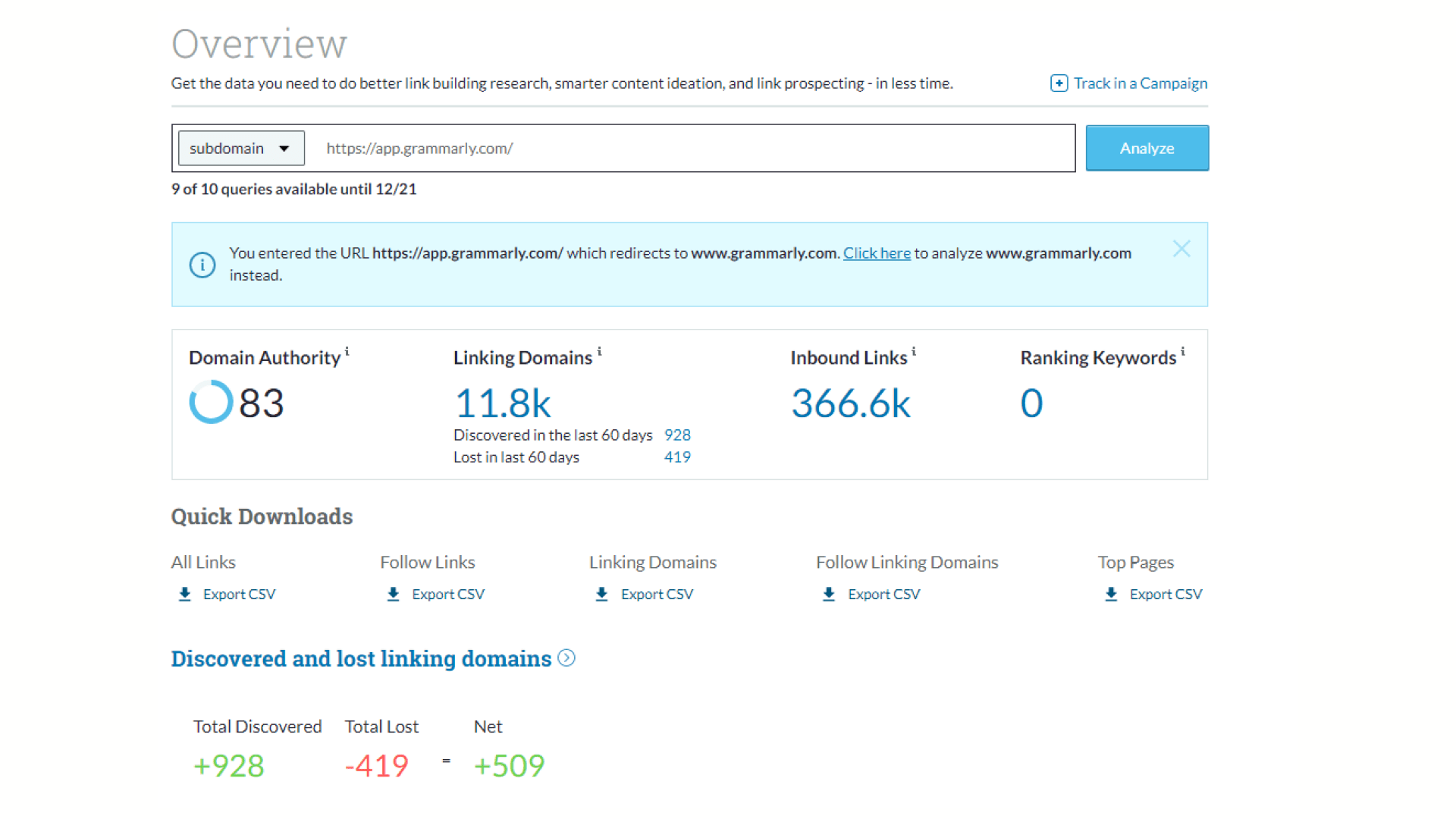
From there, you can start sifting through to see which ones are worth your time. A few things to look for:
- The page authority of the linking site
- The domain authority of the linking site
- The number of other links pointing to the site
- The anchor text of the link
- The type of link (follow or no follow)
- Any other relevant information that will help you determine if the link is valuable
This information is called a link intercept. It’s a snapshot of the link that will help you determine if it’s worth your time to try and get.
Search for guest posts
One of the most common ways people get backlink opportunities is through guest posting.
This is when you write an article for another site in your industry (or an adjacent one), often for free, and in return they allow you to include a link back to your own site.
To find out if any of your competitors are doing this, go to Google and search for “your competitor + guest post.” For example, “Blue Bottle Coffee guest post.” This will show you any articles featuring Blue Bottle Coffee that were published on other sites.

Another way to find them is by doing a simple reverse image search on their headshot. Right-click on their headshot and select “Search Google for Image” or, if using an updated version of Chrome “Search Image with Google Lens.”
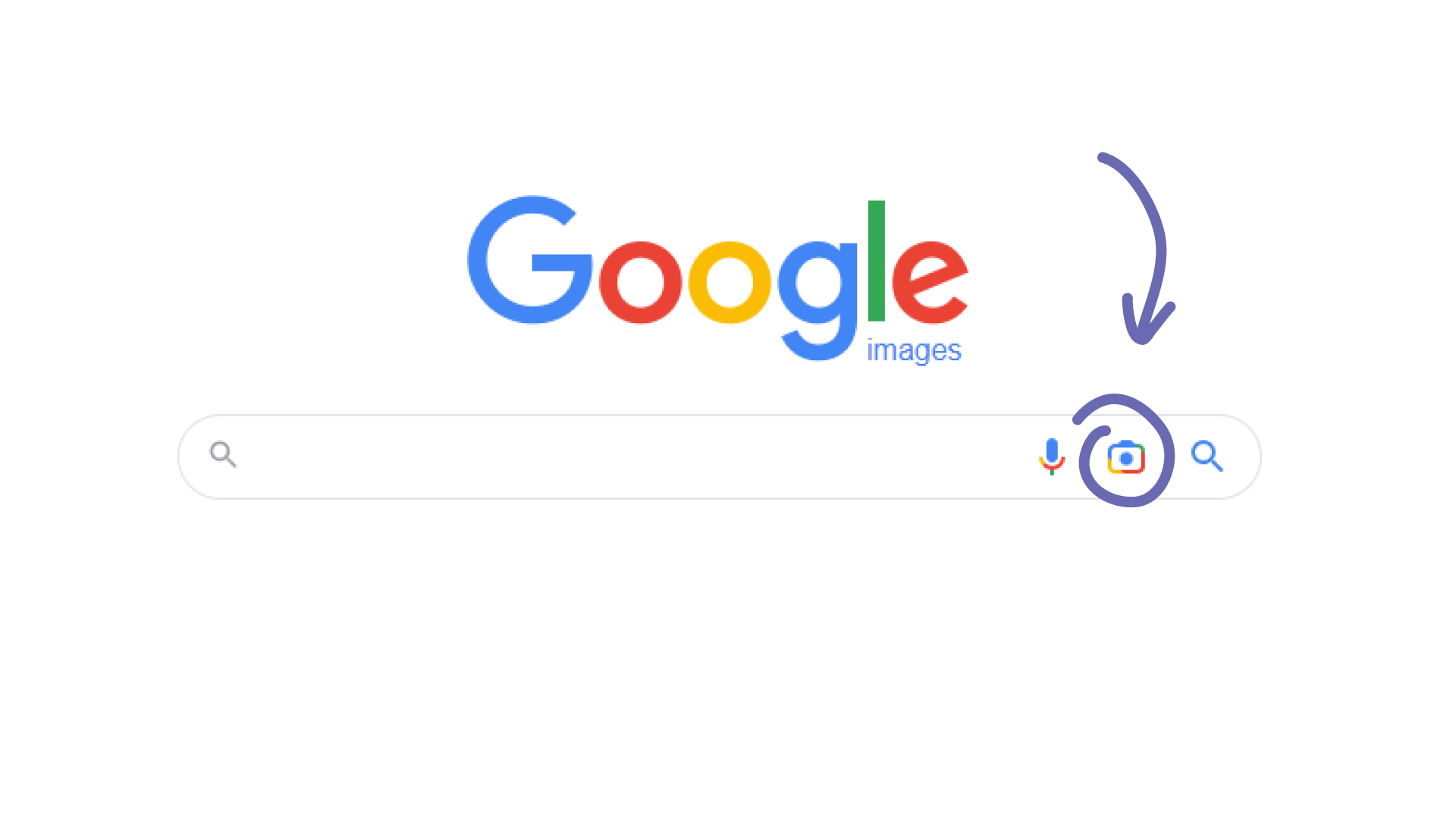
This will bring up any other instances where that image is being used on the internet. Oftentimes, when someone guest posts, they’ll use a headshot.
So if you see your competitor’s headshot pop up on another site, there’s a good chance they’ve written a guest post for them.
Target multi-linkers
If your whole industry suddenly switched to using a new type of product, you would want to jump on that bandwagon too, right? Well, imagine if there is a site giving backlinks to multiple competitors at the same time. That’s a site you’re going to want to get on.
Backlinks from high-quality websites are valuable because they act as social proof that your website is also trustworthy and authoritative.

So, if a bunch of other companies in your industry are being linked to from the same site, that’s a strong indication that it would be beneficial for you to be there too.
Here’s Max Peters, owner of Technical SEO Consulting to explain:
‘The best way to find competitor backlinks is using a specialist backlink checker. There are a few different tools that can do this, some of the most well-known are Ahrefs, Majestic, SEMrush, and Moz.
Once you have one of these tools, there are a few different ways to analyze your competitors’ backlinks:
Most of these tools will let you inspect the intersection of backlinks between more than one domain. So, you can check two or more of your competitors and see where they all have a link from the same domain but you do not.
If they are already linking to more than one of your competitors there may be a good chance you can get them to also link to your site.’
Keep an eye on competitor brand mentions
Every company should be tracking brand mentions online. This can be done through a simple Google Alert or if you have the budget for it, a more robust platform like Mention or Brandwatch.
But mentions aren’t just for finding out what people are saying about your company. You can also use them to see where your competitors are being talked about online.
If you set up an alert for each of your competitors’ names, you’ll get notified any time their name is mentioned on the internet.
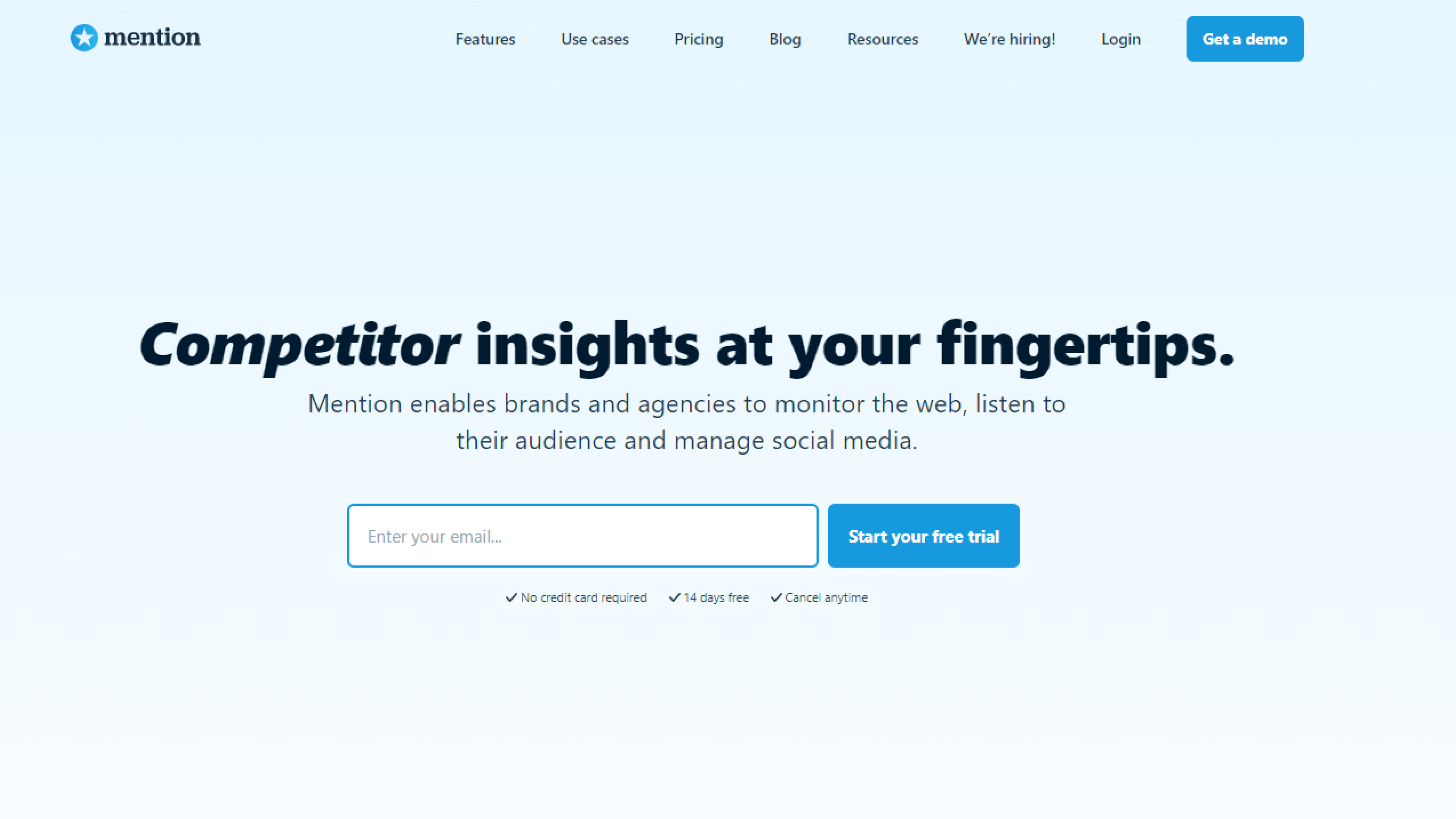
Now, not every mention will be a valuable one. You’ll have to comb through to find the gems. But when you do, you’ll likely find some great opportunities for more backlinks.
For example, let’s say you sell software that helps people manage their finances. You set up an alert for one of your competitors and one of the recent mentions is an article titled “The 5 Ways to Save Money in 2022.”
Your competitor is listed in the section about budgeting software and, even better, the author included a link to their site.
Your plan:
- You can reach out to the author and tell them you noticed they mentioned your competitor in their article but that you offer a similar service.
- You might even be able to provide some additional insights or tips about saving money in 2022.
- Ask if they’d be willing to include a link to your site as well in an updated version or the next article they write on the topic.
- Offering them a free trial or demo can help sweeten the deal.
Take advantage of broken links
Every company is constantly updating its knowledge base, changing pages, and taking down old content. But they aren’t always keeping track of the backlinks that were once pointing traffic their way. That’s where you come in.
With an SEO tool like Ahrefs, you can analyze a competitor’s site for broken inbound links. Either add a 404 filter or go directly to the free broken link checker and type in a domain.
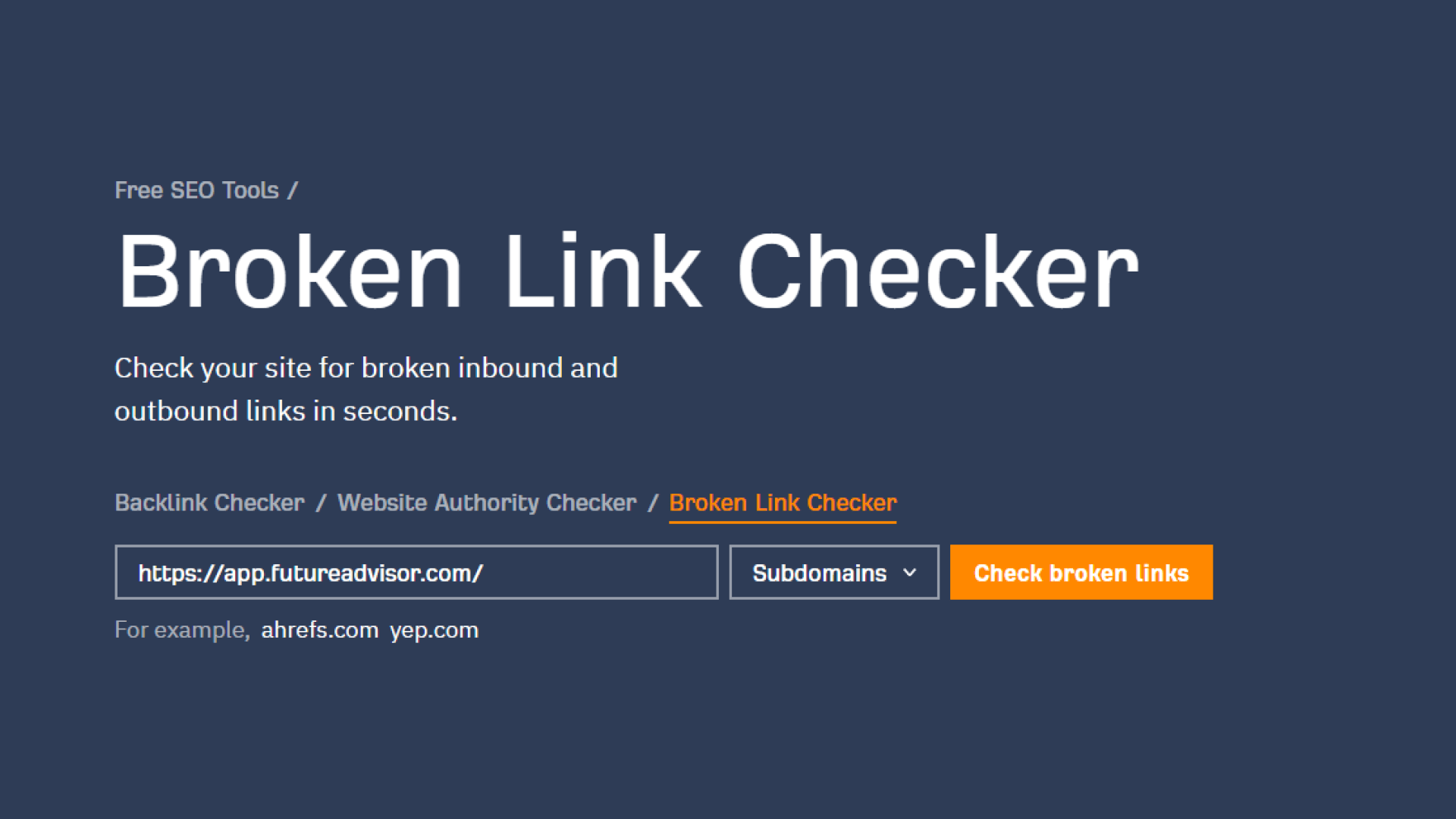
Suddenly, you’ll have dozens (or maybe hundreds) of leads to pursue. The site that used to point to a competitor doesn’t want broken links any more than you want them on your site.
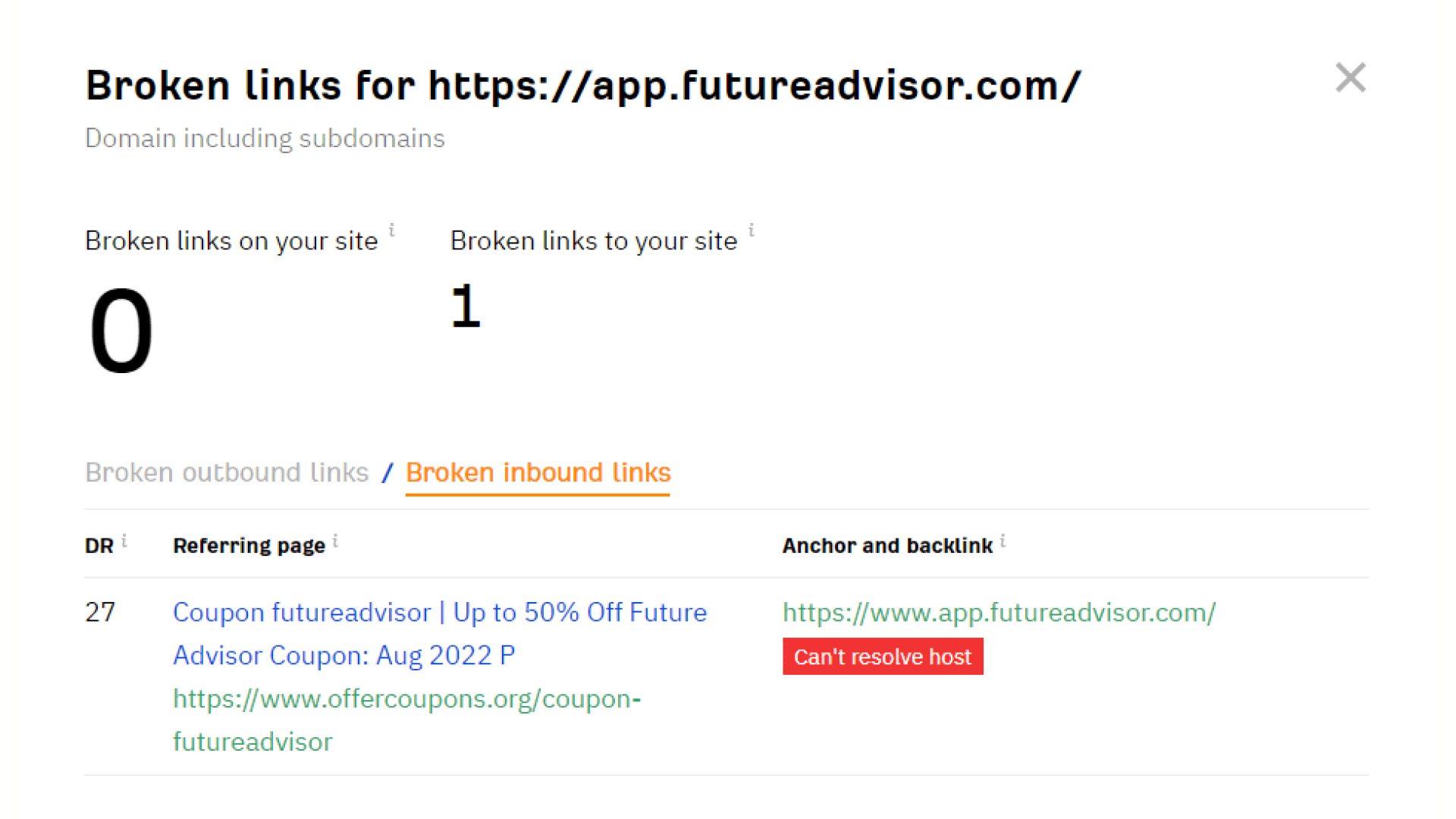
So if you can swoop in with a replacement, there’s a good chance they’ll take it.
Landing a backlink
Okay, so now you have a long list of competitor backlinks or opportunities to get one. How do you land the link and start driving traffic to your site?
Here’s where you get to be creative.
You can write an article and pitch it as a resource for their site, create an infographic that would be helpful for their readers, or even offer to guest blog.
But whatever content you create, make sure it’s high quality and helpful for their audience, not just yours.

The key is to show them that you’re an authority on the subject and that what you’re offering is worth their time.
| Focus on these five things | |
| Quality: | You can’t just spit out keyword-stuffed articles and hope they’ll link to them. The content you create should be well-written, researched, and free of errors. |
| Relevance: | Make sure your article is relevant to the site’s topic. If you’re pitching a guest blog post, for example, make sure it would be a good fit for their blog before sending it over. |
| Uniqueness: | Offer something new or different that they haven’t seen before. This could be a new perspective on an old topic, or something completely original. |
| Timeliness: | If you’re writing about a news event, make sure it’s current. If you’re talking about an evergreen topic, don’t include outdated information like studies from ten years prior. |
| Value: | This is probably the most important one. Your content should offer value to their readers – something that will help them in some way, whether it’s providing information, entertainment, or both. |
Google calls it a “focus on people-first content” in their latest update, meaning you’re not just writing for a search engine anymore.
With these things in mind, you should be able to create content that’s not only link-worthy but also something that will help you build a relationship with the site you’re reaching out to.
FAQ
What is a backlink?
A backlink is a link from one website to another. It’s also called an “inbound link” or an “incoming link.” Having a strong backlink strategy is important because they’re a signal to search engines that other sites vouch for your content.
How do I find the backlinks of my competitors?
There are several ways to find competitor backlinks. Finding their current links, searching for guest posts, keeping an eye on brand mentions, and analyzing broken links are all solid methods.
Can you find competitor backlinks with Ahrefs?
Yes! Just enter a competitor’s URL into Ahrefs and go to the “Backlinks” report. From there, you can see all of the websites that link to your competitor.
Why should you research your competitor’s backlinks?
Competitor backlink opportunities are a great way to improve your own site’s ranking. By finding the links that your competitors have, you can get an idea of what kind of content is working for them and try to create something similar for your site.
How can analyzing the links to a competitor’s website aid your link-building strategy?
Analyzing the links to a competitor’s website can help you understand what type of content is working well for them and attract more backlinks.
It can also give you ideas for new content to create that will be popular with their audience and likely to earn links.
TL;DR
Competitor backlinks are a great way to not only improve your SEO but also to get an idea of what type of content is performing well for your competitors. Follow these steps:
- Determine your competitors
- Analyze their current links
- Search for any guest posts they do
- Monitor their brand mentions
- Take advantage of broken links
- Create high-quality content
- Pitch your ideas
That’s it! Now go out there and start finding those competitor backlinks!







 View another articles
View another articles